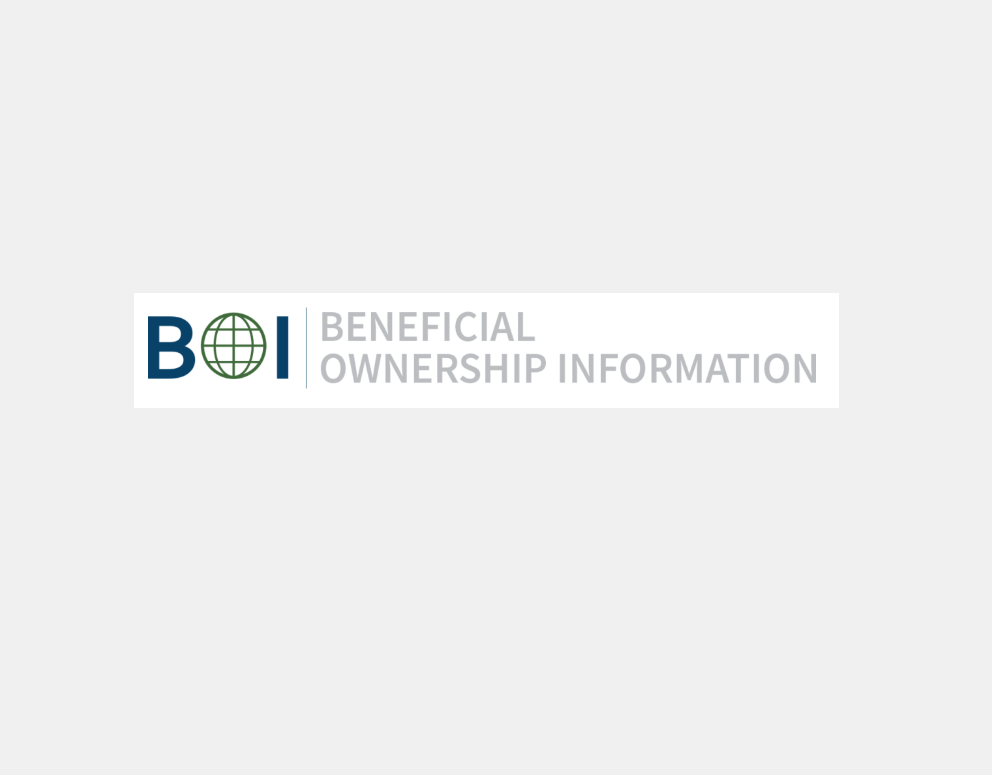
Beneficial Ownership Information (BOI) Reporting is a critical component of business compliance designed to promote transparency and deter illegal activities like money laundering and tax evasion. Introduced under the Corporate Transparency Act, this requirement mandates certain types of businesses to disclose information about their beneficial owners to the Financial Crimes Enforcement Network (FinCEN). Understanding the requirements and implications of BOI filing is essential for ensuring compliance and avoiding penalties. In this guide, we’ll break down what BOI reporting entails, who needs to file, and the penalties for noncompliance.
Beneficial Ownership Information (BOI) Reporting is a key requirement introduced under the Corporate Transparency Act (CTA) to enhance corporate transparency and combat financial crimes such as money laundering, tax evasion, and fraud. By requiring businesses to disclose detailed information about their beneficial owners, the CTA aims to create a national registry of ownership data managed by the Financial Crimes Enforcement Network (FinCEN).
Under this regulation, reporting companies are required to file a Beneficial Ownership Information report with FinCEN, identifying individuals who have substantial ownership or control over the company. This initiative promotes accountability and ensures that illicit actors cannot hide behind opaque business or substantial control structures.
BOI reporting is typically a one-time requirement; however, updates or corrections must be filed if there are changes in ownership or previously submitted information. This ongoing compliance measure helps maintain accurate records and ensures businesses remain in good standing with regulatory authorities. Understanding these requirements is essential for businesses to stay compliant and avoid penalties.
- Reporting companies include most existing U.S. businesses and foreign businesses, unless exempt.
- Exemptions include 23 types of entities, such as publicly traded companies, large operating companies, inactive entities, and entities already regulated by the federal or state government.
- Small business owners, including those with limited liability companies (LLCs), must report beneficial ownership information unless exempt.
Beneficial Ownership Information (BOI) Reporting applies to a broad range of entities, with some being subject to specific exemptions outlined under the Corporate Transparency Act (CTA). The reporting requirement primarily includes most U.S.-based businesses and foreign entities operating within the United States unless they meet exemption criteria.
Entities Required to Report:
- Small Businesses: Most small businesses, including limited liability companies (LLCs), corporations, and partnerships, must file Beneficial Ownership Information reports unless specifically exempt.
- Foreign Entities: Foreign entities registered to do business in the U.S. are also required to report their beneficial ownership information.
Exemptions from Reporting:
The CTA outlines 23 types of entities that are exempt from BOI reporting, including:
- Publicly Traded Companies: Companies are already required to report ownership details to the Securities and Exchange Commission (SEC).
- Large Operating Companies: Entities with at least 20 full-time employees, more than $5 million in annual gross revenue, and a physical office in the U.S.
- Regulated Entities: Banks, credit unions, insurance companies, and other businesses already overseen by federal or state regulators.
- Inactive Entities: Entities that were formed before January 1, 2020, have no activity, no assets, and no change in ownership.
For small business owners and those managing LLCs or corporations, it’s important to understand whether your business qualifies for an exemption. If not exempt, you are required to report beneficial ownership information to remain compliant with federal regulations.
Filing a Beneficial Ownership Information (BOI) Report is a critical compliance step under the Corporate Transparency Act (CTA). FinCEN has developed the BOI E-Filing system, an electronic platform for businesses to prepare and file their Beneficial Ownership Information reports. This system streamlines the filing process, ensuring businesses can meet their reporting obligations efficiently and securely.
At Gildark Financial Solutions Group, we offer professional assistance to help you navigate the BOI filing process, ensuring compliance and minimizing the risk of errors. By partnering with us, you can rely on our expertise to meet these regulatory requirements on time.
Filing deadlines for Beneficial Ownership Information (BOI) Reports are strictly enforced under the Corporate Transparency Act (CTA). Reporting companies are required to submit their reports to FinCEN within the specified timeframes to ensure compliance and avoid significant penalties.
Filing Deadlines
- Existing Companies: Entities formed or registered before January 1, 2024, must file their BOI reports by January 1, 2025.
- New Companies: Entities created or registered on or after January 1, 2024, must file their BOI reports within 90 days of formation or registration.
Extensions for Natural Disasters
Businesses impacted by certain natural disasters may qualify for an extended filing date deadline of up to six months, allowing the company additional time to meet compliance requirements.
Timely filing is essential to avoid penalties and ensure your business remains in good standing. At Gildark Financial Solutions Group, we provide expert assistance to ensure your BOI reporting is accurate and submitted on time, helping you navigate these regulatory requirements with confidence.

Keeping Beneficial Ownership Information (BOI) accurate and current is a critical responsibility for reporting companies under the Corporate Transparency Act (CTA). Compliance extends beyond the date of the company applicant’s initial filing, requiring regular updates to ensure the information on record with FinCEN remains accurate.
Updating BOI Information
- Changes to Beneficial Owners or Company Details: If there are any changes to the previously reported beneficial ownership information—such as a change in ownership, address, or other reported details—an updated BOI report must be filed with FinCEN within 30 days of the change.
- Corrections to Inaccurate Information: If an error is discovered in a previously filed BOI report, the reporting company must submit a corrected report within 30 days of identifying the inaccuracy.
Importance of Timely Updates
Failing to update or correct BOI information can lead to penalties, including fines and other compliance risks. Accurate and timely updates help maintain transparency and ensure that the company remains in good standing with federal regulations.
At Gildark Financial Solutions Group, we provide ongoing support to ensure your BOI filings remain compliant with federal requirements. From initial filing to maintaining and updating your records, our experts handle the details so you can focus on running your business.
Non-compliance with Beneficial Ownership Information (BOI) reporting requirements under the Corporate Transparency Act (CTA) carries serious implications for businesses. The penalties for failing to file, submitting inaccurate information, or neglecting to update changes can result in both financial and reputational harm.
Legal and Financial Penalties
- Civil Penalties: Non-compliant businesses may face fines of $500 per day for every day the report is late or incomplete.
- Criminal Penalties: Severe violations can result in fines of up to $10,000 and/or imprisonment for up to two years.
Reputational Damage
Beyond legal and financial consequences, failure to comply with BOI reporting can damage a company’s reputation, eroding trust with investors, clients, and business partners. Non-compliance may also lead to difficulties in securing funding or entering partnerships, as transparency is often a key factor for stakeholders.
Exemptions Due to Legal Actions
Certain entities, such as the National Small Business Association (NSBA), are currently exempt from BOI reporting requirements due to a court injunction. However, most small businesses still must still comply with the regulations to avoid penalties.
Ensuring compliance with Beneficial Ownership Information (BOI) reporting requirements is critical for businesses to avoid penalties and maintain transparency. To help businesses meet these obligations, a range of resources provide information, and support is available.
Resources from FinCEN
- Guidance and Tools: The Financial Crimes Enforcement Network (FinCEN) provides detailed guidelines, FAQs, and instructional resources to help businesses understand and comply with BOI reporting requirements.
- Information Sharing: FinCEN may share beneficial ownership data with authorized government agencies, law enforcement bodies, and financial institutions, ensuring transparency while safeguarding sensitive information.
Support from Gildark Financial Solutions Group
Navigating the complexities of BOI reporting can be challenging for small business owners. At Gildark Financial Solutions Group, we offer expert support to help you:
- Determine Reporting Obligations: Unsure if your business needs to file? We can assess your situation and guide you on whether you’re required to report.
- Prepare and File Reports: Our team can handle the preparation and submission of your BOI reports, ensuring accuracy and timely filing to avoid penalties.
Staying compliant with BOI reporting requirements is easier with the right resources and expert guidance. Whether you need additional information, help understanding your obligations, or handling the reporting process, Gildark Financial Solutions Group is here to support your business every step of the way.
Disclaimer: The information provided in this blog is for general informational purposes only and should not be considered legal advice. Beneficial Ownership Information (BOI) filing requirements may vary based on specific circumstances, and we recommend consulting with a qualified attorney or legal professional for personalized guidance.



